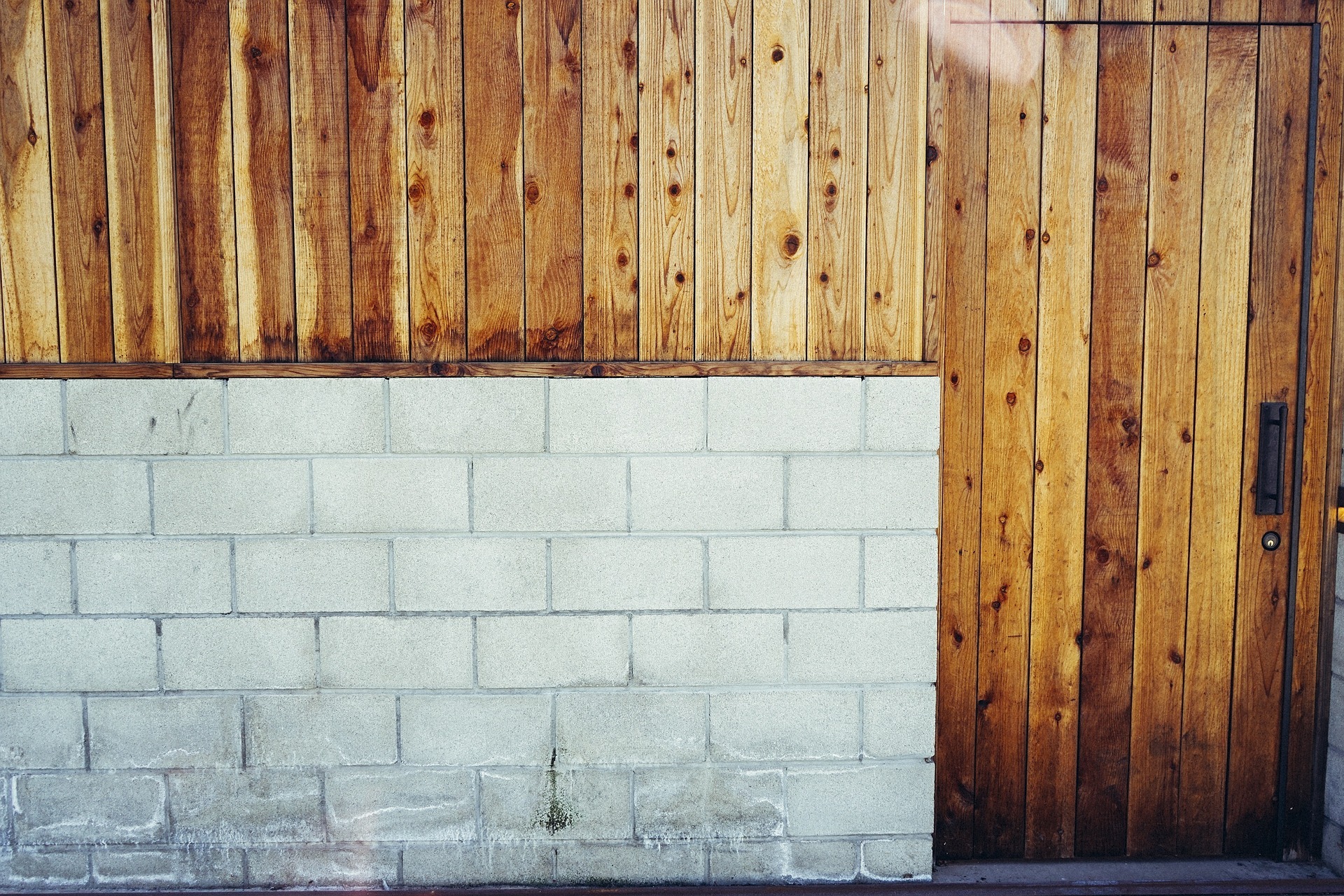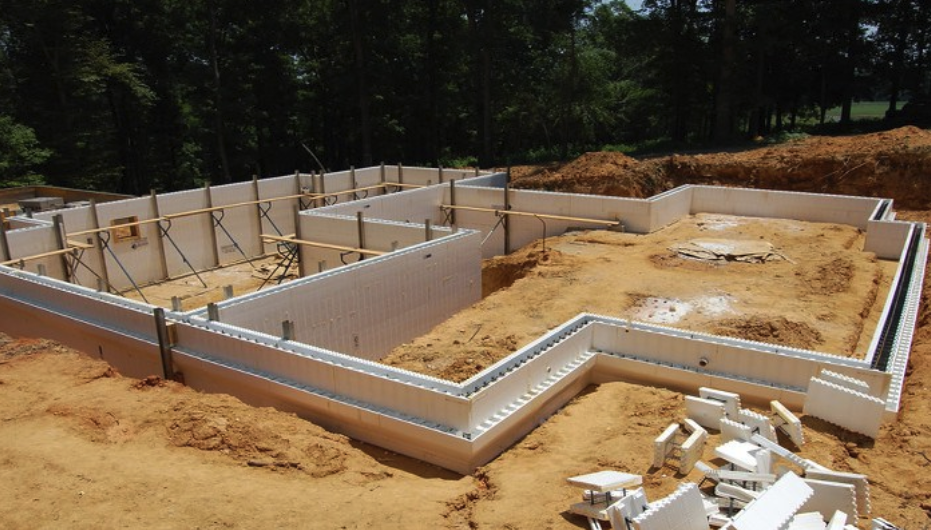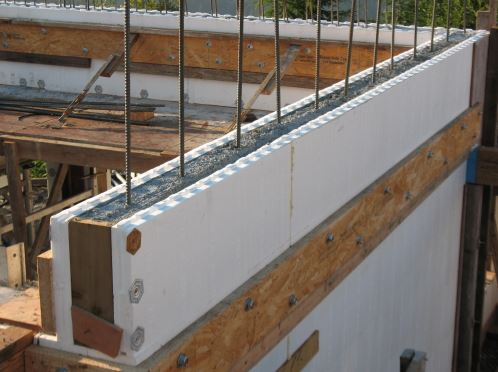
Cinder Block (CMU) vs. Traditional Poured Concrete Wall Foundations

Structural foundations are the backbone of every new building, which is why it’s critical to make sure that they are done right. Two of the most effective methods for creating wall foundations are poured concrete walls and cinder blocks — more professionally known as Concrete Masonry Units (CMUs). These materials are easy to install and can increase structural lifespan, but what sets them apart from each other? And which is the better choice for your project? We cover the differences between CMU blocks and poured concrete foundations below so that you don’t have to learn from trial and error.
Cinder Block (CMU) Foundations
CMU block foundations often use large (8-in or 10-in wide and 16-in long), hollow concrete blocks. However, sizes can vary depending on the building's weight load. To optimize strength and stability, workers install the blocks in a running bond pattern and may insert steel reinforcing bars in the core of the blocks. Mortar secures the blocks together, which rest on concrete footings.

The Pros of Cinder Block (CMU) Foundation
- There are no forms (like those required for poured concrete foundations) to configure and secure the blocks.
- CMU blocks may be reinforced with steel rebar and filled with mortar to create strong foundations.
- Correctly built and designed, the compressive strength of CMU block walls provide good support for the vertical loads on foundation walls.

The Cons of Cinder Block (CMU) Foundation
- Concrete masonry units are heavy to handle. 8-in blocks weigh 36lbs, 10-in blocks weigh 42lbs.
- A CMU block wall often requires installing an air and moisture barrier, which adds another trade and more labor to the foundation project.
- Improperly reinforced CMU blocks produce weak foundations.
- Water and weather wear down the mortar used to join the CMU blocks together - this can cause leaks.
- CMU block foundations may bow and buckle if the water in the soil around a structure builds up, resulting in costly repairs.
- CMU block foundations have good load-bearing strength; however, the foundation will lose its lateral strength if not fully grouted with rebar.
- CMU block walls have low R-values ranging from 2 to 3.
Traditional Poured Concrete Wall Foundations
Traditional poured concrete foundations involve constructing and properly securing large, heavy, wooden walls. Next, in one continuous pour, workers pour concrete into wooden forms to harden (cures) on site. Rebar, installed in the footing, limits weak points and joints.

The Pros of Poured Concrete Wall Foundations
- They take less time to construct than CMU block foundations.
- The strength, density, and joint-free construction of poured concrete foundations minimizes water issues.
- Poured concrete walls have better lateral strength than CMU block foundations, which improves their resistance to pressure from water and soil.
- A poured wall doesn't have joints like a block wall, so it is easier to waterproof.
The Cons of Poured Concrete Wall Foundations
- If spalling (when the concrete surface peels, crumbles, or flakes off) occurs during curing, the poured concrete foundation can lose its strength.
- Poured concrete foundations cost more than CMU block foundations.
- Contractors may find it difficult, time-consuming, and costly to truck in wet concrete to the job site.
- Water leakage issues in poured concrete foundations
- Poured concrete can crack and leak if not prepared correctly.
- Poured concrete walls may leak moisture through non-structural cracks in the wall (where the wall and floor meet, at the top of the foundation wall or through the porous concrete).
- Leaks can happen if the foundation drops, settles, or sinks due to the soil below the foundation collapsing.
- Dry spots in the concrete wall may occur by improper grading or poorly planned outdoor construction
- Poured concrete foundations have low R-values of less than 3.

Why Choose Fox Blocks ICFs for Your Next Foundation Project?
To avoid the problems with CMU blocks and traditional poured concrete foundations, builders should consider Fox Blocks insulated concrete forms (ICFs). Fox Blocks offers a poured concrete method that creates a more durable, strong, and energy-efficient foundation over either traditional poured concrete wall or CMU block foundations. Engineering design tables for ICF foundation and above grade walls is listed the IRC building code or available on Fox website.
How to Construct an ICF Foundation
Constructing ICF foundations involves dry-stacking expanded polystyrene foam panels, or interlocking hollow extruded polystyrene foam, to a foundation’s length. Workers then reinforce and brace the forms before pouring concrete into the hollow form panels.

The Advantages of Fox Blocks ICF Foundations
- The fast and straightforward installation lessens labor costs and construction risks over other concrete foundation types. The Fox Blocks all-in-one wall assembly combines five construction steps into one, structure, insulation, air barrier, vapor retarder, and attachment. This feature significantly accelerates project delivery by eliminating the need to coordinate multiple trades while achieving all of the foundation goals.
- ICF foundation walls may be designed with 6" or 8" reinforced concrete.
- The wall system includes a vapor retarder which more effectively resists moisture intrusion over CMU block and poured concrete wall foundations.
- They have an R-value of greater than 20, making them much more energy-efficient than CMU blocks or poured concrete foundations.
- The forms used in ICF construction protect the concrete of ICF foundations. This makes them less susceptible to cracking than poured concrete foundations.

The Ultimate Wall Solution
A foundation built with Fox Blocks simplifies construction, saves time, reduces cost, and lessens long-term problems over both cinder (CMU) blocks and traditional poured concrete foundations. Furthermore, Fox Blocks create a more moisture-resistant and energy-efficient foundation than other concrete foundation methods.
Contact Fox Blocks experts for more information on why Fox Blocks ICF provides the best solution for building a solid foundation.